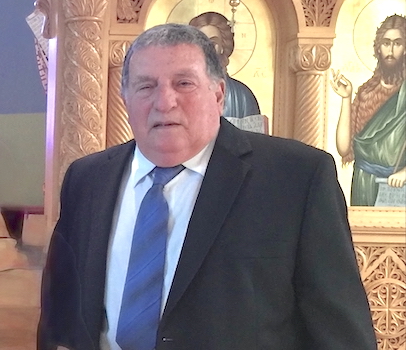Judge to decide on pretrial Q&A for jurors in Seale case
Published 5:02 pm Thursday, April 12, 2007
Attorneys for reputed Klansman James Ford Seale on Thursday will try to persuade a federal judge to block prosecutors’ request for a detailed questionnaire designed to reveal the racial attitudes of potential jurors.
Already, U.S. District Judge Henry T. Wingate said he’s inclined to allow the questionnaire to speed up the jury selection process in the trial of Seale, who’s charged with kidnapping in the 1964 slayings of two black teenagers, Henry Hezekiah Dee and Charles Eddie Moore, in southwest Mississippi.
“I am predisposed toward a questionnaire and I have to be talked out of it by the defense,” Wingate told attorneys during a teleconference last week.
Trending
Seale, 71, is scheduled to appear in court for the pretrial hearing at 1 p.m. Thursday. He is being held in the Madison County Jail while awaiting trial.
Seale was arrested at his Roxie home in January and has pleaded not guilty to kidnapping and conspiracy in the May 2, 1964, abductions of Dee and Moore, both 19. FBI reports say the teens were hitchhiking in Meadville when they were grabbed and beaten, allegedly by Klansmen, and then thrown in the Mississippi River to drown.
Seale’s trial originally was set to start in early April, but was delayed because of pretrial motions by both the defense and the prosecution.
Wingate has said that if he allows the use of a jury questionnaire, the trial could begin in four or five weeks. That would be in late May.
Detailed question-and-answer forms about racial attitudes have been used in other civil rights-era cases that have been reopened in Mississippi in recent years.
For example, in Neshoba County in 2005, a questionnaire was used to screen potential jurors in the trial of Edgar Ray Killen, a one-time local Ku Klux Klan leader charged in the June 21, 1964, slayings of three civil rights workers. Killen was convicted of manslaughter.
Trending
Mississippi Attorney General Jim Hood — who helped prosecute Killen and is not involved in the Seale case — said questionnaires help lawyers choose a fair jury.
“People are more inclined to write down what their feelings are rather than stand up in open court and say it,” Hood said in a phone interview Wednesday.
Paige Fitzgerald, an attorney for the civil rights division of the U.S. Justice Department, said the questionnaire proposed for the Seale trial would be similar to the one used in the federal murder trial of Earnest Avants.
Avants was convicted Feb. 28, 2003, in the June 10, 1966, Klan killing of Ben Chester White, a 67-year-old handyman shot to death to possibly lure Martin Luther King Jr. to Natchez.
Fitzgerald said a questionnaire could speed up the process of selecting a fair jury in the Seale case and would be “the best way to ensure the most open and candid responses” because potential jurors could fill out the form in private.
Kathy Nester, one of Seale’s public defenders, said prosecutors’ proposed jury questionnaire has “shocking” questions about interracial rape and other issues. She said that in past cases where the questionnaires have been allowed, the defendants have been convicted.
Nester told Wingate last week that she objects to a questionnaire now “seeing as how we’re seeking a somewhat different result in this case.”
Seale and reputed KKK member Charles Marcus Edwards were arrested in 1964 in the deaths of Dee and Moore. The FBI — consumed by the search for the three civil rights workers who had disappeared in Neshoba County that summer — turned the case over to local authorities, who promptly threw out all charges.
The Justice Department reopened the Dee and Moore case in 2000. The FBI has said the case was closed in 2003 and opened again in July 2005. Edwards has not been charged.
At the Killen trial in 2005, state Circuit Judge Marcus Gordon granted prosecutors’ request to drop one person off the jury list because of answers the man gave on a questionnaire. District Attorney Mark Duncan said the man’s response to a question about the state bringing a murder case after 41 years was, “’Bull. Been too long a time.”’
Duncan said the man also said on the questionnaire that he’d either been in the Klan himself or had family members in the Klan.





